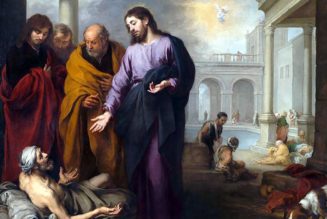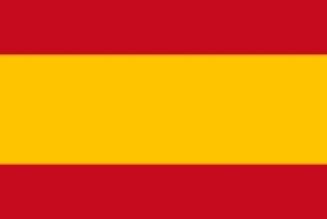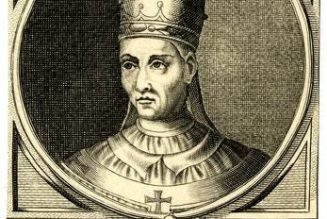ROME – As of yesterday, the coronavirus lockdown as Italy has known it since March 8 effectively ended. “Phase 2” kicked into gear with the reopening of shops and public parks, bars and restaurants for take-out service, and relatively free movement within one’s own region.
Of course, Italy is hardly the only country that’s experienced a long quarantine, even though it was the first outside China to enforce one. Still, there have been a number of “only in Italy” moments along the way, things that would or could only happen in il bel paese, and now that the worst is over it’s worth looking back.
One thinks, for example, of the early round of voluble Italians singing from balconies and terraces to break through the monotony, including the unforgettable sounds and images of the entire city of Siena belting out La Verbena, their unofficial anthem, at 9:00 p.m. on March 16.
Or, there were the politicians from Italy’s always-raucous south who found colorful ways to enforce coronavirus restrictions, such as the Mayor of Messina, Cateno De Luca, who pre-recorded an expletive-laden rant at scofflaws and then ordered drones to fly around town playing it, or President Vincenzo De Luca of Campagna, who went on Facebook to warn youth organizing clandestine graduation parties that if he got wind of one, he’d send cops “with flamethrowers.”
Yet Italy being Italy, many of these unique moments involved the Catholic Church.
They include the online sensation of the “PreTuber” (a 26-year-old priest named Father Alberto Ravagnani who’s become a YouTube star), from the fact it was front-page news how many people were ticked off because they couldn’t get the traditional olive branches that Italian parishes distribute on Palm Sunday, and which tradition holds are to be used during the blessing for the family Easter meal. I know PR officers for Catholic groups in Rome who report their phone calls spiked that week, not asking how to get to Mass, necessarily, but how to get the olive branch.
Herewith, my personal Top Five list of Catholic “only in Italy” moments from the quarantine.
(5) The Politics of Mass
Italy, like the rest of Western Europe, is thoroughly secular. Data from the national statistical institute ISTAT shows that for years, the percentage of people who never go to church, not even occasionally, is higher than the percentage who go at least once a week, and the gap is widening.
Yet only in Italy would the politics of Mass become such a front-burner issue – not churches generally or religious services, mind you, but the Catholic Mass.
Perhaps the most vintage Italian moment in that regard came when the leader of the right-wing populist and anti-immigrant party the League, Matteo Salvini, publicly called on churches to be open for Easter Mass, prompting a cascade of criticism.
Among those who rallied to his defense was the head of the League’s youth wing, who took to Facebook to modify the proposal a bit: Open the churches for Easter, he suggested, but give preference to men, because the country is suffering from a “crisis of virility.”
In the end, Easter Masses remained in private … which meant, actually, that the idea of giving preference to men actually worked, since often the only people in church were the priest and maybe a deacon.
(4) Get-Out-Of-Jail-Free Card: Exorcism
As part of the lockdown, being outside the house since March 8 until yesterday was limited to three official motives: Going to the grocery store or pharmacy, going to work in a business allowed to remain open, or going to a health appointment, plus returning home from any of the above. (Walking one’s dog also has been tolerated).
Beyond that, police have been issuing stiff fines to anyone moving around without reason. However, in late March in the tiny northern Italian town of Arborio (population roughly 900), a man stopped while driving his car offered police an original excuse: He was a priest, he said, on his way to perform an exorcism on someone possessed by a demon, brandishing a form he claimed was signed by the bishop of the diocese.
The officer waved on him without delay, not even asking for a verbal declaration (which is supposed to be standard protocol), because, and I’m quoting here, “You don’t joke around with exorcisms.”
Naturally, the guy turned out to be an impostor – the Archdiocese of Vercelli was compelled to release a statement saying it had no idea who he was, nor does it have any form for priests performing exorcisms. Still, the guy obviously knew the right button to push.
(3) Actor Praises the Pope
In Rome a video has been making the rounds written, directed and starring the actor Fabrizio Giannini, who appeared in one of Italy’s most popular TV shows called Un Medico in Famiglia (“A Doctor in the Family”). It’s basically a paean to Rome, with Giannini thundering while standing alone on the city’s Via del Corso that after this crisis, “Rome will be reborn more beautiful and stupendous than before!”
The video has become so popular that it’s been embedded on the web site of La Repubblica, the country’s highest circulation daily newspaper. I became aware of it because a friend in our neighborhood WhatsApp group, formed amid the quarantine, posted it.
Giannini says people can have “two certainties” as they exit the lockdown: “Masks and gloves? No … Pope Francis, and Rome.”
He then proceeds to devote a large chunk of the video to Pope Francis’s appeals during the coronavirus crisis to two legendary Roman religious icons: Maria, Salus Populus Romani, a painting of the Virgin traditionally attributed to St. Luke, and the miraculous crucifix of the Church of San Marcello. He tells the stories of those icons, including their roles during historical periods of the plague.
Francis visited the icons on March 15, and later brought them to St. Peter’s Square for his March 27 Urbi et Orbi ceremony.
“When I saw those icons in the square with Pope Francis in the middle, I don’t know how to say what happened inside me,” Giannini said. “In the heart of that piazza, as if I were there, as if the pope were calling us all by name, was the entire soul of Rome … And that’s why Rome will be reborn.”
Giannini, for the record, is not a known Catholic quantity here, someone who gets involved in Church activities or is a favorite of the clerical system. He’s simply a Roman finding hope in the one person, above all others, who’s always made the Eternal City singular – the pope.
(2) Pope as Pop Star
Unsurprisingly, data from Italy’s main ratings services show that viewing of TV programming has been up about a third since the lockdown began, and presumably more or less the same is true in other parts of the world.
What’s more unique here is that the highest ratings of all have been for two papal events: The March 27 Urbi et Orbi blessing, which drew a national audience of 11 million, and the April 12 Easter Mass, which garnered 15 million. (Both were the most-watched programs in the country those months.) A nationwide prayer of the rosary on March 19 organized by the Italian bishops’ conference but introduced by Pope Francis also had a massive audience, drawing about 4.2 million viewers and finishing as the second most watched program on Italian TV that night.
You know what show narrowly finished in first place?
Don Matteo, the highest-rated program in the history of Italian TV, which has been airing for 20 years. It features a genial priest who’s got a police commissioner for a friend, and, because of his deep knowledge of human nature, is able to help his friend get to the bottom of his cases. It’s the classic Italian image of a parroco, meaning a pastor – wise, knowing, nobody’s fool, yet always with a kind word and an open hand.
In other words, that night the Italian TV audience was split between a parish priest and the pope praying the rosary. If you can get more Catholic than that, no matter how secular this country may be, I’d like to see it.
(1) Transgender Prostitutes
By a country mile, however, the most “only in Italy” story from a Catholic angle during the quarantine has to be the group of transgender prostitutes who showed up at Rome’s Beata Vergine Immacolata church in the Torvaianica neighborhood to ask for help, and who ended up getting a hand directly from Pope Francis himself.
At first just one person came to ask for help, and then they came back again with a small handful of others. When they told the pastor they were from Argentina, he suggested they write to the pope asking for money to pay rent, and promptly the pope’s personal almoner, Polish Cardinal Konrad Krajewski, arrived to deliver the help.
RELATED: Pope’s charity helps transgender prostitutes in Rome amid coronavirus fallout
Obviously, it’s hardly “only in Italy” that either transgender persons or prostitutes are subject to violence and exploitation, and where they may find themselves in need.
However, given that the Catholic Church hardly has a global reputation for approval of either transgenderism or prostitution, where else would it occur to people who’re both to go knocking on the door of the local Catholic parish?
In Italy, everyone – and I do mean everyone, from the most fervent devotee of the Madonna to the most entrenched anti-clerical firebrand – knows that when the chips are truly down, the parish is the last line of defense. When all other doors are closed, when one’s family and friends walk away, when the state seems distant and unresponsive, the parish is always there.
And that, gloriously, is typically Italian too.
Follow John Allen on Twitter at @JohnLAllenJr.










